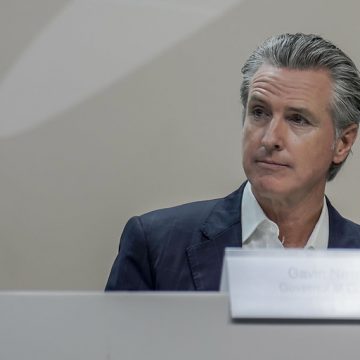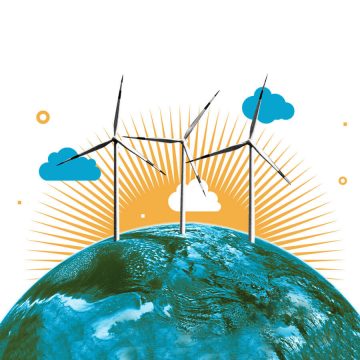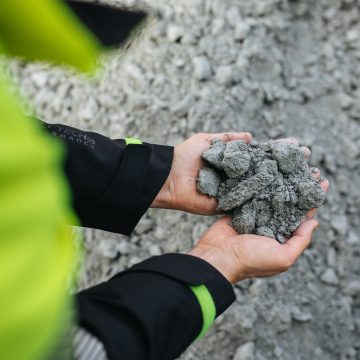Every business depends on biodiversity, and every business impacts biodiversity. The growth of the global economy has been at the cost of immense biodiversity loss, which now poses a critical and pervasive systemic risk to the economy, financial stability and human wellbeing. This is a central finding of a report published by the Intergovernmental Platform on Biodiversity and Ecosystem Services (IPBES).
Category: Features
$100bn: turning clean fuel ambition into progress by 2030
Global investment in clean fuels will need to quadruple by 2030 to meet global clean fuel ambitions, according to a new World Economic Forum report 'Fuelling the Future: How Business, Finance and Policy can Accelerate the Clean Fuels Market', developed in collaboration with Bain & Company. Highlighting the potential of the sector to stimulate job growth and diversify energy supply, the report sets out policy, business and financing measures that can turn global goals into credible, economically viable projects.
Severe convective storms the costliest insured peril of this century
Severe convective storms (SCS) have surpassed tropical cyclones to become the costliest insured peril of the 21st century, according to Aon's annual Climate and Catastrophe Insight report. The report shows how increasingly common, high-volume events are reshaping global loss patterns and highlights the critical importance of both physical and financial resilience to help organisations manage volatility and unlock insurability.
WEF: global cooperation remains good in the face of geopolitics
Global cooperation is proving resilient even as multilateralism continues to face strong headwinds, according to the World Economic Forum’s Global Cooperation Barometer 2026. However, cooperation is below where it needs to be to address critical economic, security and environmental challenges. Dialogue is a critical factor in identifying pathways that advance shared interests.
Commission takes measures to transition Europe to a circular economy
The European Commission has unveiled a first set of pilot actions to accelerate Europe's transition to a circular economy, with a particular focus on the plastics sector. The Commission says that by optimising the recycling of plastics, these measures will further unlock the potential of the Single Market and enhance the EU's economic security, strategic autonomy, competitiveness and environmental sustainability.
AI can solve development challenges: agriculture, health, education
Artificial intelligence is reshaping economies and societies at a remarkable pace, transforming how people learn, work and live. Its ability to unlock access to knowledge, boost productivity and open new markets holds immense potential to accelerate development, creating jobs, new industries and boosting economic transformation, says the World Bank's 'Digital Progress and Trends Report 2025: Strengthening AI Foundations'. It offers a comprehensive data-driven snapshot of the global AI landscape.
ZeroAvia completes financing to industrialise electric propulsion system
ZeroAvia has completed a further round of financing, led by Barclays Climate Ventures, Breakthrough Energy Ventures, Ecosystem Integrity Fund, Horizons Ventures, Summa Equity and AP Ventures, with participation from the National Wealth Fund and the Scottish National Investment Bank. With additional investment secured, ZeroAvia has extended its cash runway for the next two years and will continue to fully industrialize its hydrogen power and propulsion technology for the aviation market.
Analysis: humans are built for nature not modern life
Human biology evolved for a world of movement, nature, and short bursts of stress, not the constant pressure of modern life. Industrial environments overstimulate our stress systems and erode both health and reproduction. Analysis from the University of Zurich and Loughborough University says that evidence shows the toll of this mismatch.
230+ organisations demand a moratorium on data centres
Members of Congress in the US have been targeted by more than 230 organisations demanding a national moratorium on the approval and construction of new data centres. The organisations represent millions of people in all 50 states. The letter is explicit in the environmental and social threats posed by unbridled data centre construction.
90% of 4,000 large companies connect value and decarbonisation
Decarbonisation is emerging as a key business differentiator. Accenture’s latest report on the decarbonisation activities of the world’s largest companies finds that those that connect climate ambition to business strategy are cutting emissions faster and creating lasting value. But the journey is far from complete: just 16% are on track to reach net zero in their operations by 2050.
Governor Newsom: subnational climate action is a defining opportunity
Governor Newsom said California is leading by example, proving that climate action and economic growth go hand in hand. As California continues and accelerates its climate action, the Governor urged global investors to embrace the technologies and infrastructure driving the clean energy future.
Ralph Lauren retires net zero goal in favour of rolling milestones
Ralph Lauren Corporation has announced that it will evolve its approach to climate as part of its ongoing commitment to decarbonisation. It will retire its 2040 net zero goal in favour of setting rolling five-year GHG reduction milestones, with a near-term focus on its current SBTi-validated 2030 goal to reduce emissions by 30% from its FY20 baseline.
Close to 100 countries signal new climate targets
Close to 100 countries – including nearly 40 Heads of State and Government – have announced, committed to finalising or set out their commitment to implementing their new climate targets ahead of COP30 in Belém, Brazil this November. The announcements came at a Climate Summit convened by UN Secretary-General António Guterres and President Luiz Inácio Lula da Silva of Brazil on the margins of the 80th session of the UN General Assembly.
European Parliament adopts new EU rules to reduce waste
The European Parliament has given the green light to new measures to prevent and reduce waste from food and textiles across the EU. For context, each European generates 132kg of food waste and 12kg of clothing and footwear waste per year. The updated legislation will introduce binding food waste reduction targets, to be met at national level by 31 December 2030: 10% from food processing and manufacturing and 30% per capita from retail, restaurants, food services and households.
Largest sand battery in the world launches in Finland
Polar Night Energy has built an industrial-scale sand battery in Pornainen for Loviisan Lämpö’s district heating network. The new sand battery delivers 1MW of thermal power and offers a storage capacity of 100MWh, making it 10 times larger than the Sand Battery launched in Kankaanpää in 2022.
















